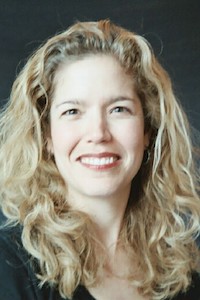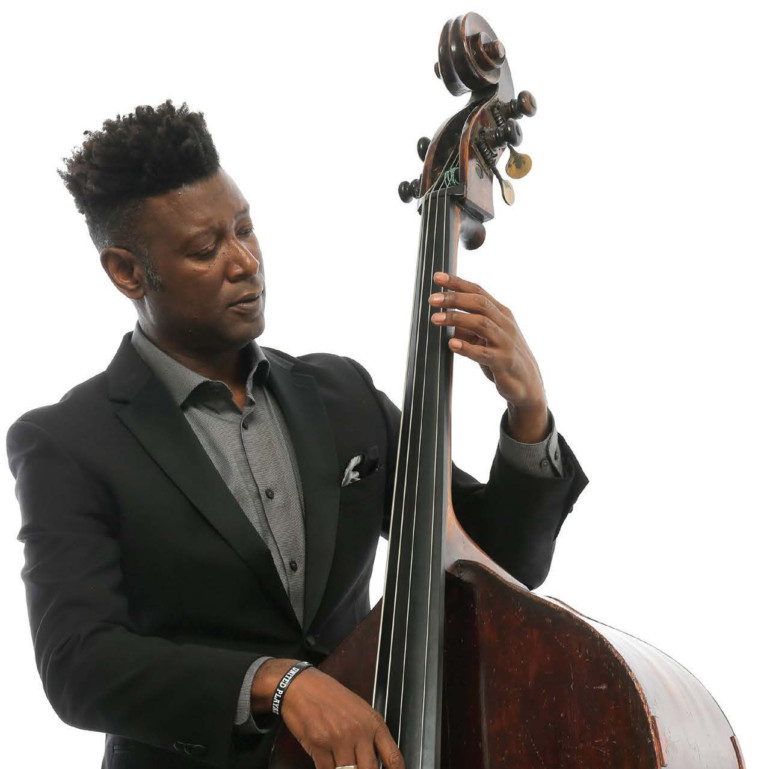Marcus Shelby, a resident artistic director for SFJazz, enjoys working in different mediums, exploring the creative process and the expansive, ever-changing world of music. This month, he brings musical underpinnings to the characters in Marin Theatre Company’s Jazz, based on the book by Toni Morrison. We chatted with Shelby about what music adds to the production and where he stands as a baseball fan.
1. You were living in Los Angeles before you decided to move to San Francisco. What inspired you to move here?
I went to CalArts down in L.A. and studied with Charlie Haden and with James Newton. L.A. is where I found my mentor, Billy Higgins, and where I worked with my band, Black/Note. It was my birthplace, musically. I had come to the Bay Area for a few gigs over the years and I really liked it here. San Francisco offered life outside of music in terms of lifestyle and community; that was really different than L.A. I saw a lot of opportunity to develop in areas I wanted to grow in, like theater and dance, and develop as a composer outside of the performance stage. I had some friends here, but it happened quickly in a sense of finding work. That made the transition smooth.
2. You’ve lived in the Bay Area for some 23 years now. Have you seen a shift in how people perceive jazz around here?
There has been a shift in how they receive jazz. When I first moved here, live music was everywhere. It still exists but it is not like it used to be. I came up when older musicians were more in contact with younger musicians. That was the primary way to learn culture and promote opportunities. Academia has taken its place. It’s a different way of learning the music.
3. What drew you to Toni Morrison’s book Jazz?
When I was a younger musician, it seemed every Christmas, someone would give me that book. I think they thought it was about jazz. It’s somewhat about that but more about what happened during the Great Migration. The book captures the dynamic essence of jazz and the blues, which reaches and teaches all cultures.
4. Does the production at Marin Theatre Company capture that same essence of jazz?
The director and writer of this project tapped into that and found ways to highlight what Toni Morrison was doing with this story and what it means and that time period in America, which follows the history of jazz up the Mississippi to “upper Southern” places. Migration is a big theme in our story and a big part of jazz.
5. How do you, as composer of the production’s score, interweave music into a staged production?
They brought me on at the very beginning of the process. Working with the writer and director to talk about how music will serve the story was critical. Timing and intuition are different onstage, so it gets refined in rehearsal. We are working with two worlds in this play — the supernatural and the real — and music will help frame that.
6. Music can be so evocative. Are there ways to identify a character or a theme through the score?
Each actor will have their own sound. Some actors are more prominent — you might hear a solo instrument more than you hear the ensemble.
7. The book is set during the Jazz Age but travels throughout the South to an earlier century. What did you have to consider when composing the score to reflect the book’s and the production’s setting?
The South is where the blues was born. There is an authenticity to Mississippi Delta blues or the music out of New Orleans. New York’s influence came later — Louis Armstrong went to New York in 1924.
8. You seem equally inspired by the blues and jazz. Where do you find inspiration in Marin or the Bay Area when you need a blues or jazz refresh?
An exciting advantage of being in the Bay Area is the access to all these different creative forms. We have a premier organization here in SFJazz and the Bay Area is still strong. We adapt to changes and of course technology has provided different opportunities that are not location-based. I still need to go to New York, though.
9. Giants or Dodgers?
Giants. But I would love to set up a podcast to talk about the history of baseball and jazz.

Christina Mueller is a long-time Bay Area food writer. She hails from the East Coast and has spent way too much time in South America and Europe. She discovered her talent as a wordsmith in college and her love of all things epicurean in grad school. She has written for Condé Nast Contract Publishing, Sunset, and the Marin Independent Journal, among others. She volunteers with California State Parks and at her childrens’ schools, and supports the Marin Audubon Society, PEN America, and Planned Parenthood. When she is not drinking wine by a fire, she is known to spend time with her extended family.


